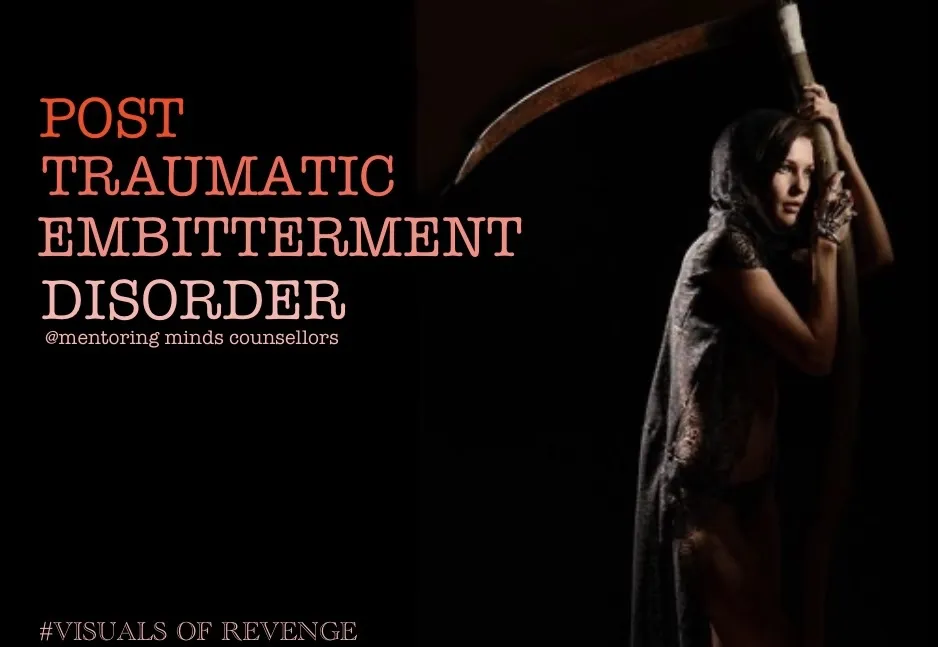Life is full of challenges, but some events leave scars so deep that it feels impossible to recover. While most people are familiar with post-traumatic stress disorder (PTSD), there’s another emotional struggle that can be equally debilitating: Post-Traumatic Embitterment Disorder (PTED).
But, what is Post-Traumatic Embitterment Disorder (PTED)?
Post-Traumatic Embitterment Disorder is a relatively recent psychological condition that occurs after an individual experiences a highly unjust or unfair event. Unlike PTSD, which typically involves trauma from physical or emotional threats, PTED arises from feelings of deep bitterness, resentment, or injustice over the perceived wrongs or betrayals someone has faced.
Imagine being let down by someone you trusted, being wronged at work, or experiencing a severe personal loss that feels entirely avoidable. The emotional wound from such events can linger for months or even years. People with PTED often become consumed by anger, resentment, and frustration that they cannot easily shake off.
What can be some of the Symptoms and Signs of PTED?
One of the most significant features of PTED is a pervasive sense of embitterment. This isn’t just a fleeting feeling of anger or disappointment but a deep-rooted emotional state that disrupts a person’s daily life. Some of the common signs include:
- Resentment: A constant feeling of being treated unfairly or betrayed, often in situations where others might not perceive the same injustice.
- Anger: This can manifest as explosive outbursts or a general sense of irritability and frustration.
- Depression and Hopelessness: People with PTED may feel hopeless about the future, believing that their life is irreparably damaged by the unfairness they’ve endured.
- Hypervigilance and Suspicion: Similar to PTSD, those with PTED may become overly cautious or distrustful of others, expecting betrayal or mistreatment.
- Difficulty Moving On: Unlike a more typical grieving process, PTED can trap individuals in the past, with little room for emotional healing or forgiveness.
What can be some of the Causes of PTED?
The cause of PTED is often a specific event that shakes an individual’s belief in fairness or justice. These events are typically perceived as unfair, cruel, or unjust, leaving the person feeling emotionally shattered. Some common causes might include:
- Betrayal in Relationships: Whether from a partner, friend, or family member, betrayal can leave emotional scars that are hard to heal.
- Workplace Injustice: Being passed over for a promotion, unfairly reprimanded, or unjustly treated at work can lead to lasting feelings of embitterment.
- Loss or Disappointment: A significant life loss whether it’s the death of a loved one, a sudden breakup, or an unrealized dream can spark these feelings of anger and hopelessness.
- Discrimination or Marginalization: Experiences of systemic injustice or discrimination can also lead to PTED, particularly when the individual feels helpless to change their situation.
How can PTED Affect our Daily Life?
For those who suffer from Post-Traumatic Embitterment Disorder, the emotional effects can be all-consuming. The bitterness and resentment become part of their identity, often affecting their relationships, work, and overall quality of life. They may have difficulty trusting others, isolating themselves from social interactions, or holding onto grudges that seem impossible to let go of.
The person may also struggle to find joy or satisfaction in life, as their mind constantly returns to the perceived injustice they’ve experienced. This can contribute to a downward spiral into depression, making it harder to break free from the emotional trap.
Conclusion
We at Mentoring Minds Counsellors understand that Post-Traumatic Embitterment Disorder is a painful emotional condition that can severely affect one’s life. The weight of bitterness, anger, and betrayal can be heavy to bear, but it’s important to remember that healing is possible. Recognizing the symptoms of PTED and seeking the right support can help individuals move from a place of pain and bitterness to one of acceptance, healing, and emotional freedom.
Healing isn’t about forgetting what happened it’s about finding a way to live despite the pain, to reclaim control over your emotions, and to finally release the grip of embitterment. Everyone deserves to move forward, and with the right help, you can too.


Leave a Comment